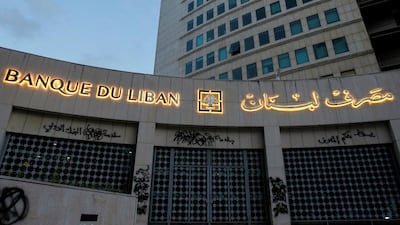Lebanon’s Central Bank signalled its intention to co-operate with Alvarez & Marsal, the consultancy firm the government previously asked to carry out a forensic audit of the bank.
The company withdrew from the task in November, citing “insufficient provision of information”, with Banque du Liban, by which the central bank is also known, arguing that providing access to all the requested data would breach banking secrecy laws.
The consultancy firm’s decision prompted Parliament to convene in December to ease banking legislation for a year to allow for the audit of BDL and various state institutions. The audit is one of the reforms the international community insists Lebanon must undertake to receive much-needed financial aid.
The BDL said on Friday that it had sent a letter to Finance Minister Ghazi Wazni confirming its “commitment to all provisions” of the recently enacted law and to “positive co-operation with Alvarez & Marsal with regards to the questions it raised”.
BDL’s statement came a day after Mr Wazni said he was awaiting answers from the central bank on questions that Alvarez & Marsal had raised before asking the consultancy firm to resume the audit.
Many fear the process could be derailed by the political paralysis engulfing Lebanon.
Despite the economic urgency, the country has been without a fully functioning Cabinet since the deadly explosion that ripped through Beirut's port in August, killing more than 200 people and forcing the government to resign.
On Friday, Lebanon's prime minister-designate Saad Hariri dashed hopes of a breakthrough in negotiations on forming a government after a meeting with President Michel Aoun.


